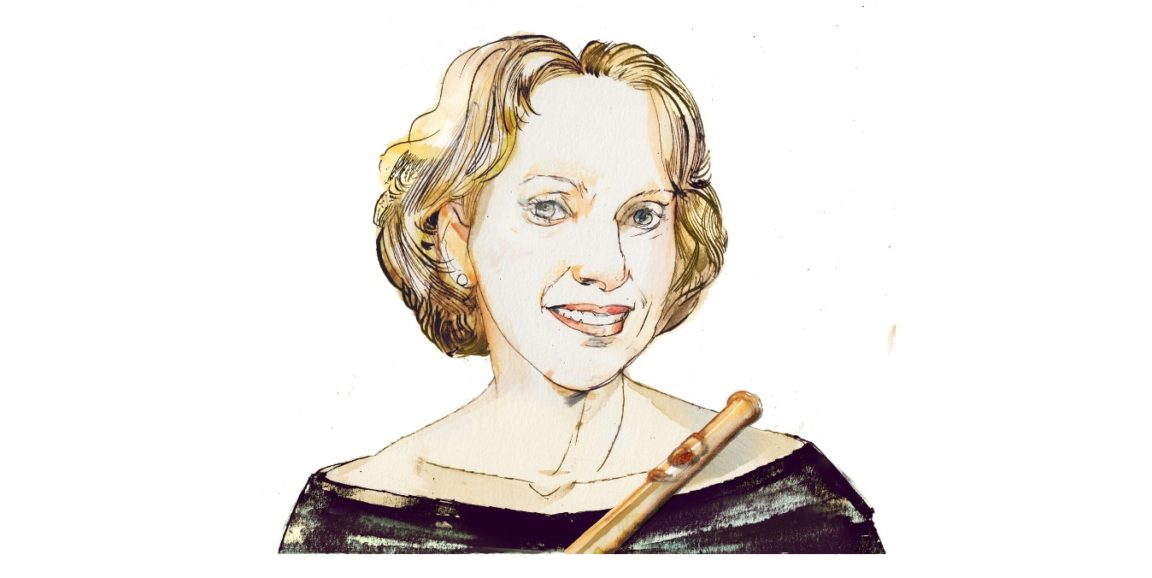Renowned international flutist Eugenia Zukerman believes you can find joy among the brambles of Alzheimer's disease. Now, in what she describes as the end of the first stage of the brain disorder, she feels fully functional and is living every day to the fullest.
She admits that it was unsettling at first to hear, during a clinical visit five years ago, that a neuro-psychiatric exam revealed that she had Alzheimer's. But for some reason, she told me during a conversation for a Q&A in the new issue of Stanford Medicine magazine, she wasn't afraid.
"I didn't cry. I think I just took it for what it was. I brought it home with me," she said.
Once she returned to her New York apartment, she sat down at her desk and stared for a while at the wall -- thinking about what she called her "new set of circumstances." Then, the former arts correspondent for the "CBS Sunday Morning" program took pen to paper and wrote a poem.
The healing power of writing
What emerged over the following months was a lyrical memoir of poetry detailing Zukerman's gradual cognitive impairment and memory loss. Honest and touching, the inspirational collection of poems, Like Falling Through A Cloud, published in late 2019, is a brave and forthright journey that takes the reader through the author's confrontations with mental decline.
I spoke with Zukerman after the book was published and again after she received her second dose of the Moderna COVID-19 vaccine earlier this year. The Q&A for the magazine -- called "A way through the brambles" -- is an edited version of our two conversations.
In the most recent call, Zukerman told me she's still feeling "really good ... functional and blessed."
"I try to simply live every day and keep very positive," she said.
That's made easier by spending time with family, writing and playing her flute, which she said has been "my best friend, my other" since she began playing as a child.
Not letting sadness take over
She knows that her future will be darker; the next stage of Alzheimer's will require more care and beyond that, hospitalization. Yet, she's made a certain peace with the disease and works hard to keep sadness at bay.
"I can't stress enough how important it is to roll out of bed and do your exercises. ... I feel very lucky that I can move around, go hiking in the woods and walk with the dogs," she told me. "I try to stay as nimble as I can."
I recently checked in with Zukerman's husband, former broadcast executive Dick Novick, to inquire about how she's doing now.
"Eugenia is staying strong," he told me. "She does weekly readings for the Alzheimer's Association's book clubs, playing the flute and organizing concerts," and, he added, "still fighting a dreadful disease."
Read my Q&A with Zukerman in the magazine here, and listen to my 1:2:1 podcast of our conversation here.
Photo illustration by Riccardo Vecchio






